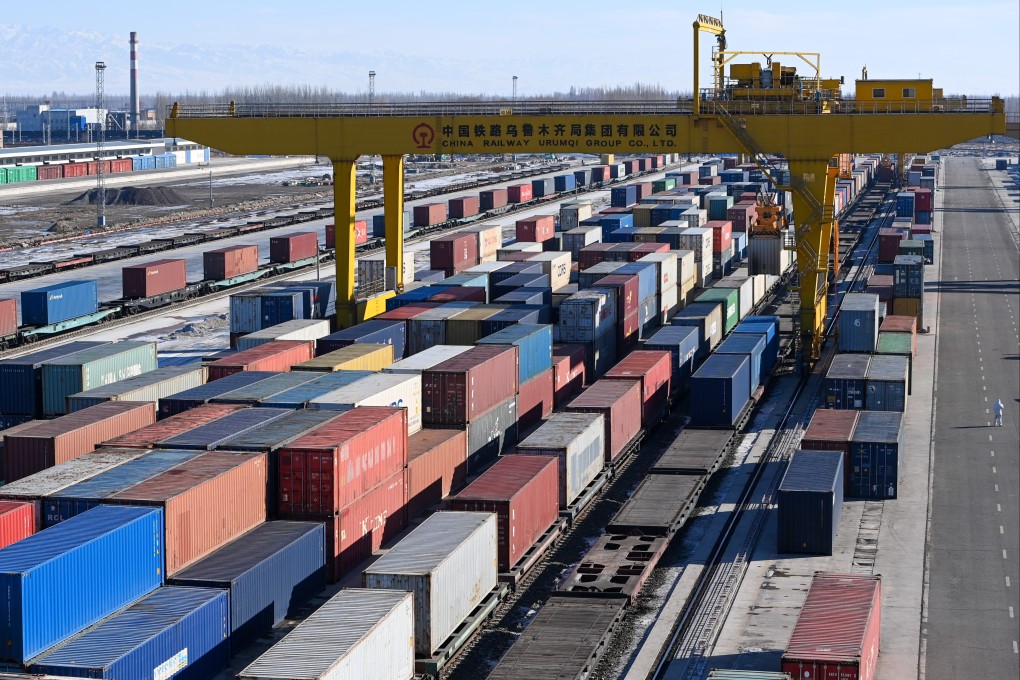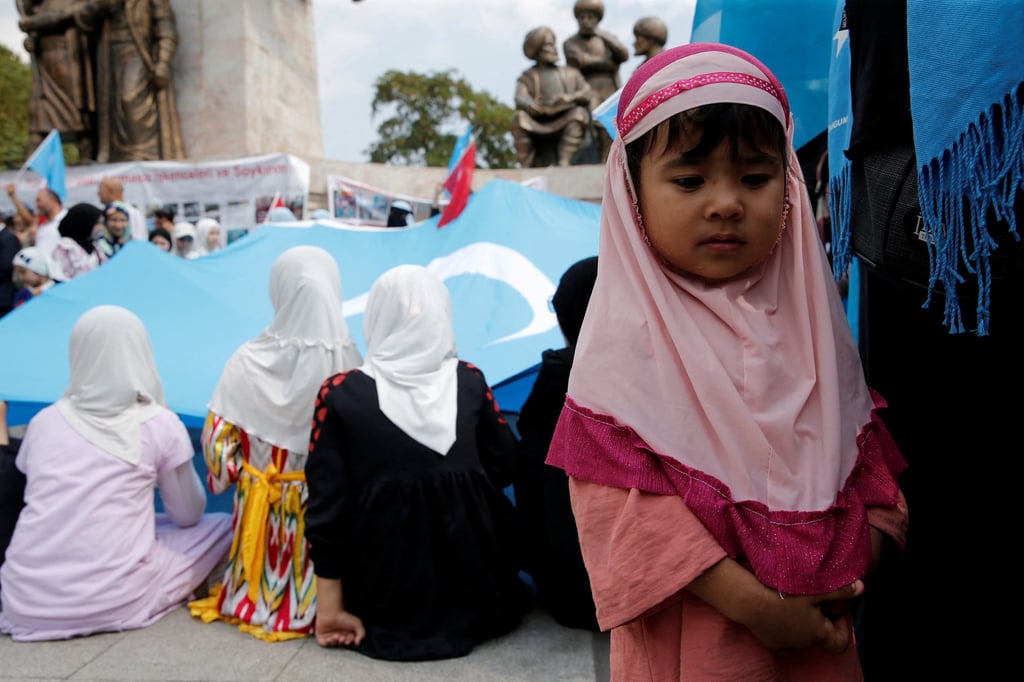Advertisement
Xinjiang exports to EU more than double despite forced labour concerns
- Direct shipments from controversial Chinese region in August surged 136 per cent year on year to US$137 million, customs data shows
- High volume raises questions about effectiveness of planned EU ban on tainted goods following stinging UN human rights report
Reading Time:3 minutes
Why you can trust SCMP
15

Finbarr Berminghamin Brussels
Exports from Xinjiang to the European Union more than doubled last month, despite widespread concerns over forced labour in the Chinese region.
Direct shipments from Xinjiang to the 27 member states surged 136.2 per cent to US$136.7 million in August compared with a year earlier, according to Post calculations based on new Chinese customs data.
The boom was spread across multiple European nations and product groups.
Exports of lithium-ion batteries jumped 600 per cent, while photovoltaic solar cell shipments appeared in the data for the first time since records began in 2017, with the lion’s share of both going to Germany.
Investigative media and academic reports have linked both product groups to forced labour programmes in the region, where the Chinese government is accused of holding up to 1 million Uygurs and other Muslim minorities in detention camps.

Beijing has consistently denied allegations of human rights abuses in the region, with its foreign ministry saying “there has never been forced labour in Xinjiang”.
Advertisement
Select Voice
Choose your listening speed
Get through articles 2x faster
1.25x
250 WPM
Slow
Average
Fast
1.25x